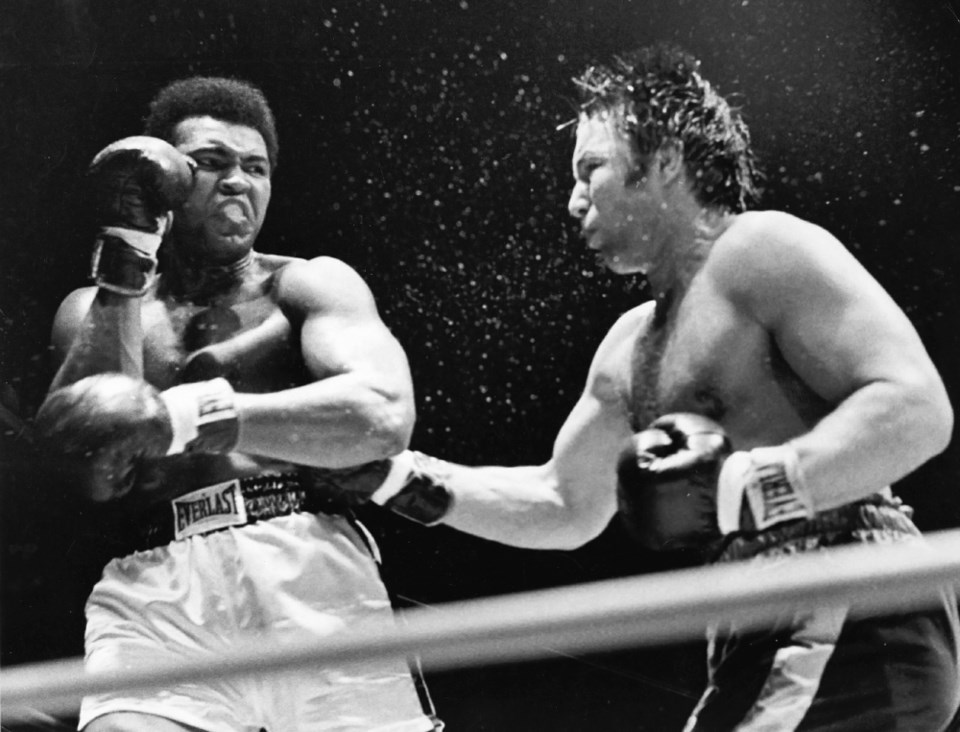The world recently said goodbye to a man who was a world champion in every sense of the phrase.
Muhammad Ali passed away on June 3 at the age of 74.
For those of us growing up in the 1960s and '70s, Ali was the greatest boxer of all time. He set the standard by which all heavyweight fighters were measured. We were so proud of our own George Chuvalo, not only because he was a Canadian champion, but because he was tough enough to go the distance with Ali, not once, but twice.
Ali was also a great entertainer. We loved his legendary interviews with outspoken sportscaster Howard Cosell. Ali could handle him like no other athlete, avoiding Cosell's questions and threatening to remove the interviewer's hairpiece. He would then tell us how great he was, how pretty he was and how he would win the next fight.
As I grew in awareness of the world around me, I realized that Ali was more than a fighter and an entertainer. He was a man of principle and a true world champion.
Many were critical when, in 1964, he joined the Nation of Islam and changed his name from Cassius Clay to Muhammad Ali.
During the Vietnam War, Ali refused to be inducted into the army. As a result he lost his title, was banned from boxing, and lost his livelihood for over three years.
The more that Ali stood for his principles, the more respect he gained. He was beloved everywhere he went.
This became very obvious to me when I moved to Kinshasa, Zaire in the early 1990s. Though Ali had defeated George Foreman nearly 20 years earlier, people still talked about the fight and what it meant to them and to their city. A very dear friend told me how at 16, he sold a pair of his pants in the market so that he could buy a ticket, how he stood in the crowd and chanted "Ali, boma ye!" (meaning "Ali, kill him!" in Lingala), and then celebrated, dancing in the streets as the delayed rainy season finally arrived and soaked the city in a deluge. This was the impact Ali had everywhere he went.
Though principled, Ali was still very human and lived with some regrets.
For example, he had never made peace with Malcolm X before his former mentor was assassinated in 1965. X had a falling out with the Nation of Islam, and Ali, a new celebrity convert, was caught in the middle. One of the reasons for X's fallout was that his personal faith had deepened, especially after his pilgrimage to Mecca. He saw that people of every race are beloved by God, and therefore he could no longer engage in racial rhetoric. What is interesting is that Ali seemed to believe the same as Malcolm X and he too eventually left the Nation of Islam.
When we look at the people who spoke at Muhammad Ali's funeral, it is clear that he had done much to break down the barriers that had been in place when he was born in 1942 and were still in place when he rose to fame in the 1960s.
There were people of many races and religions, from First Nations leaders, to Christian and Muslim clerics, to former president Bill Clinton, and Jewish comedian Billy Crystal. All spoke of their love and admiration for a great man.
Muhammad Ali taught us to celebrate who we are, to take pride in ourselves, and to be our very best.
With our hero we can all stand up and say, "I'm so pretty. I am the greatest." And then follow these words with hard work and determination as we strive to make the same positive impact that he made in overcoming adversity to change the world.



